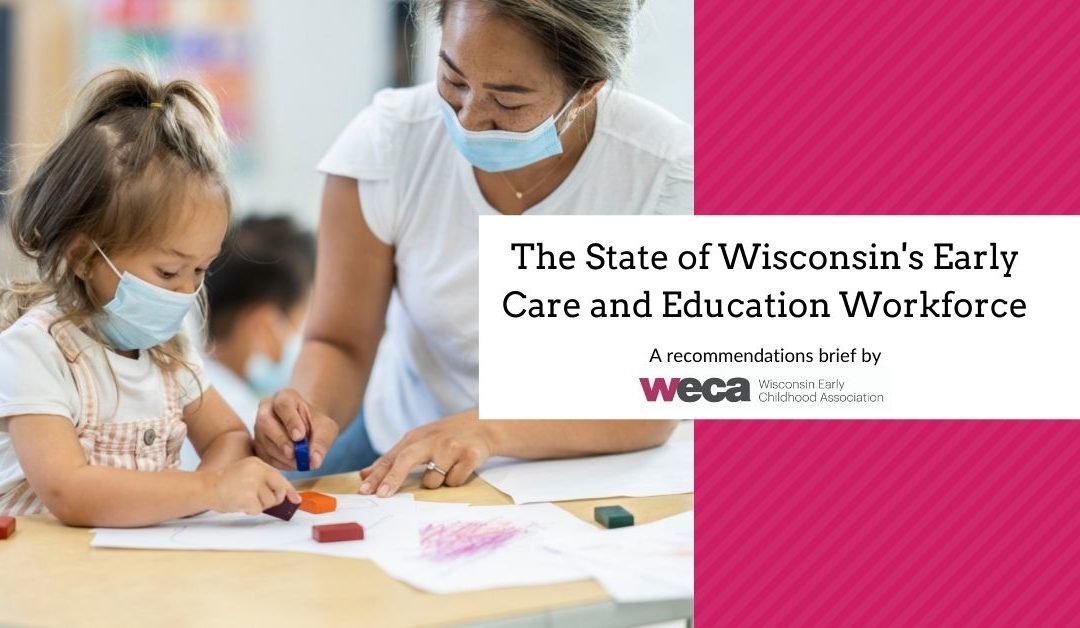WECA announces the release of its recommendations brief, “The State of Wisconsin’s Early Care and Education Workforce,” in response to key findings of the Series of Studies of the Wisconsin Early Education Workforce, published today by the Department of Children and Families. To read the full brief, click here.
The findings, while not surprising, have again reinforced what has been obvious for so long: Child care is a broken model with an underpaid workforce serving families who cannot, and should not be asked to, pay more for care.
In the brief, and in WECA’s long-held opinion, it is critically important to prioritize this workforce now. More than 25,000 Wisconsinites, over 97 percent of them women, are employed in ensuring thousands of our children are safe, healthy and having key developmental needs met with their mothers, fathers, and guardians work. As the workforce behind Wisconsin’s workforce, their contributions are critical to the economic well-being of our state and the current and next generation of workers.
Key findings from the studies include:
- A highly educated and experienced ECE workforce;
- Low, unlivable wages;
- Lack of access to benefits;
- Serious staffing crisis;
- Loss of family child care providers.
Read DCF’s Executive Summary of the reports here.
In response, WECA has called for:
- Sweeping state and federal investments after pandemic relief funds are exhausted to ensure ongoing stability in this critically important sector;
- Moving the ECE workforce toward compensation and benefits in parity with elementary and secondary educators;
- Ensuring diversity and racial equity in ECE programs to help all Wisconsin communities thrive;
- Investing in and expanding programs that assist with educational opportunity and rewarding professionals for commitment to the field, including T.E.A.C.H. Early Childhood® WISCONSIN and the REWARD Wisconsin Stipend Program.
“It is time to come together and take meaningful action to solve an issue that’s been lingering and escalating for years,” said WECA Executive Director Ruth Schmidt in the brief. “We have a timely opportunity to forever change the early care and education system for the better. The right investments – substantial ongoing public investments which directly support the early childhood workforce – are vital for families, businesses and our communities to thrive. It is time for Wisconsin to act.”
WECA is grateful to DCF for funding the research completed by COWS and the UW-Madison Institute for Research on Poverty. The results from the three surveys (Teachers, Program Directors and Family Child Care) continue to illustrate the need to invest in child care as the public good it is and support a system of care not just financed by working families.
What is good for children – and the adults who care for educate them – is sound public policy.

